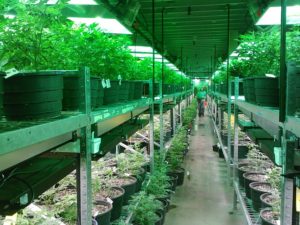by Jason Thomas, Avalon Realty Advisors, Inc.

Since 2013, I have provided professional commercial real estate and business brokerage services to the licensed cannabis industry. Over the years, I have had the pleasure of working with some of the most outstanding cannabis business owners on dozens of projects throughout the United States. However, despite one’s cannabis business experience, acumen, and industry understanding, real estate issues come up that can make or break your business. Whether you’re a business owner, real estate investor, or other cannabis business that is real estate reliant, considering these simple dynamics should save you money, time, and effort.
Municipalities
Selecting the right municipality is of utmost importance and the first factor to consider. Does the municipality you are considering allow cannabis business and issue licenses? If not, what is the prospect of them changing their position in the future? What is the cultural and political climate? If the political and/or social climate are closed to the industry, then consider saving yourself an uphill battle with opposing groups and look for a different jurisdiction.
Zoning and Setbacks
Is the property correctly zoned? Most cultivation facilities are relegated to light and heavy industrial manufacturing and agricultural zoned properties instead of in more retail locations, which makes sense since it’s a manufacturing/production facility. Dispensary/retail stores, extraction/infusion and testing facilities generally have a wider zoning criteria and are typically located in commercial, retail, industrial and/or mixed-use zone districts. Without the correct zoning, your facility will not be licensable.
 In the municipality you’re considering, what are the setbacks between the property and nearby sensitive uses such as schools, parks, hospitals, day care and drug rehab centers? Based on the licensing jurisdiction, required setbacks and sensitive uses will vary, but typically one thousand feet in a direct measurement between property lines is the longest setback distance that is required. Depending on the municipality’s regulations, if the property is too close to nearby sensitive uses and within the setbacks then the property may be disallowed to be licensed.
In the municipality you’re considering, what are the setbacks between the property and nearby sensitive uses such as schools, parks, hospitals, day care and drug rehab centers? Based on the licensing jurisdiction, required setbacks and sensitive uses will vary, but typically one thousand feet in a direct measurement between property lines is the longest setback distance that is required. Depending on the municipality’s regulations, if the property is too close to nearby sensitive uses and within the setbacks then the property may be disallowed to be licensed.
Available Capital
How much capital do you have to invest in the property (regardless of leasing or owning)? Many of our clients and customers aren’t prepared for the time, cost, and effort of getting a property licensed and up and running. In my experience, tenant finish and equipment costs for indoor grows are generally around $120 to $150 per square foot and up. On a per light basis, build-out costs are in the range of $8,000 to $12,000 per flowering light fixture installed. Greenhouse and other types of cultivation facilities are generally less costly to fit up and provide for a lower cost of production over indoor grows, but there are tradeoffs between property types and growing methods.
Buy vs. Lease
Whether to buy or lease is really a matter of available capital and your business plan. Buying your own real estate will provide you with total control of your facility and you will not be subject to rent increases or other items as you are when leasing. On the other hand, leasing may be less costly upfront, but subjects your business to real estate swings, dynamics within your lease, and your relationship with the landlord. If you do lease, negotiate a purchase option for the property to secure the ability to buy it at some future point in time.
Exit Strategy
Lastly, what is your exit strategy for the property? If you expect to grow out of the facility in the near-to-mid-term, consider its viability at that time with the technology and innovations being applied today. Will it be outdated and inefficient in when it no longer suits your business, or will it be functional and effectively produce the product desired at the time you exit? If you spend too much on your facility, can you recapitalize out of it by selling the property and/or business?
While these are only five areas to consider when pursuing licensable marijuana real estate, there are many others that have been proven to be issues and others that are yet to be discovered. Consider each step along the way and how it impacts the vision for your company to set yourself up for long-term success.
 Jason Thomas is the CEO and Managing Broker of Avalon Realty Advisors, Inc., a commercial real estate and business brokerage company based in Denver, Colorado. Avalon exclusively serves the licensed cannabis industry through providing brokerage services for buying/selling/leasing properties, buying/selling cannabis businesses and licenses, property and business valuations, expert witness testimony and consulting. With over 25 years of combined real estate and over 10 years of cannabis business experience, Avalon’s advisors are uniquely qualified to provide best in class real estate and business services to the licensed cannabis industry throughout the US.
Jason Thomas is the CEO and Managing Broker of Avalon Realty Advisors, Inc., a commercial real estate and business brokerage company based in Denver, Colorado. Avalon exclusively serves the licensed cannabis industry through providing brokerage services for buying/selling/leasing properties, buying/selling cannabis businesses and licenses, property and business valuations, expert witness testimony and consulting. With over 25 years of combined real estate and over 10 years of cannabis business experience, Avalon’s advisors are uniquely qualified to provide best in class real estate and business services to the licensed cannabis industry throughout the US.

Follow NCIA
Newsletter
Facebook
Twitter
LinkedIn
Instagram
–